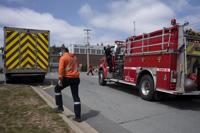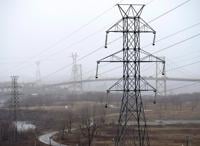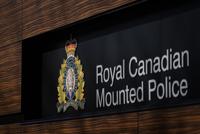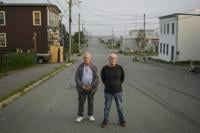HALIFAX - A report assessing Halifax’s response to a wildfire that destroyed 151 homes found that communications issues caused confusion and a lack of fire mitigation measures may have exacerbated the crisis.
A report authored by Halifax Regional Municipality staff lays out weaknesses in its response to the fire that started in a suburb northwest of the city’s downtown.
“As the municipality has grown, the maturity of the Emergency Management function has not kept pace and has remained underfunded and under-resourced,” reads the report, which is scheduled to be presented to council Tuesday.
At a peak, more than 16,000 residents were forced to evacuate after a fire broke out on May 28 and some were prohibited from returning home for as long as 12 days.
The report said the municipality’s emergency plan was last reviewed in 2018, even though reassessments are supposed to take place every three years.
“The absence of fire mitigation measures and dry hydrants may have exacerbated the crisis,” said the report, which recommends the city consider making it mandatory that communities have access to water supply.
It also recommends that Halifax not develop new housing unless there is “sufficient access and egress options” and increase staffing levels within emergency management.
During the fire, residents were affected by the scarcity of evacuation routes and many found themselves trapped behind fire lines or caught in traffic while attempting to flee.
As well, “the breakdown in communication and unclear accountability between HRM and the province had a noticeable and detrimental impact on the situation,” according to the report.
Demand for information during the fire “overwhelmed operations” and resulted in some details being shared quickly, from multiple sources and without verification, the report said.
“The lack of quality assurance and verification caused greater confusion and contributed to frustration for staff, community, and elected officials.”
The report, which comes with 49 recommendations, covers the municipality’s response to the fire and is separate from Halifax Regional Fire and Emergency's post-incident assessment, which is still underway.
The hope is that lessons learned from the Halifax-area wildfire will ensure that emergency response keeps up with the impacts of climate change, “which present increasing hazards in frequency and intensity,” reads the report.
This report by şÚÁĎłÔąĎÍř was first published Oct. 15, 2023.








































